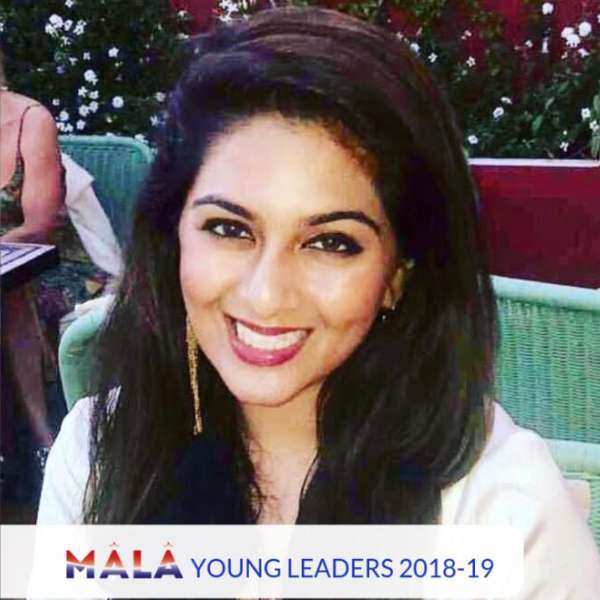Nausheen Rajan: Navigating Identity
Nausheen Rajan is a member of the 2018-19 MALA Young Leaders Fellowship. Fellows participate in monthly digital seminars, dinner discussions, and other MALA events. As part of the program, Fellows reflect on their multiple layers of identities – as daughters, sons, professionals, athletes, and so much more – and share those reflections into the MALA story collection. Personal stories can be a powerful catalyst for change – challenging stereotypes, building bridges, and inspiring action. In a country as diverse and complex as the United States, the identities of Muslim Americans remain layered and contested. We all have stories to tell: stories that deserve to be collected, conserved, and celebrated. We are honored to share the stories of our Fellows here.
I choose to define myself by not completely defining myself in one way. It may seem non-committal, but the way I like to think about it is that my identity is ever-evolving and the role it manifests depends on the context I am in. At times, this has left a sense of discomfort—as in there is no true fit, a slight disconnect from your surrounding. Sometimes, I can be assertive about my opinions based on my identity, and at that other times, I have been utterly passive. There is always a sense of navigating through the complex depth of one’s identity, which as a captain on this expedition of life can be exhilarating or terrifying depending on the context—and these emotions are usually determined by how accepted one’s identity is in a given place or situation. It can either empower you to speak your mind or invalidate your thoughts.
The first time I had an existential crisis about my identity was when I was 16 at Seeds of Peace international summer camp in July 2010. I was a part of the American Delegation. Within the delegation, I brought diversity across the board—Muslim, Asian-American, child of immigrants from Pakistan, and first generation. What I found to be a hurdle in this context was understanding how my ideas were driven by these identity markers in the diverse context I was in. For example, I was speaking to Ammar, who was from Palestine, about our opinion regarding a few things. Since he did not agree with my opinions, he said I was not Muslim. The reality was he grew up in Palestine identifying as a Sunni Muslim with certain notions, whereas I grew up in America as a Shia Ismaili Muslim—both bringing valuable, yet clashing viewpoints about the world simply because of our own individual experiences in the world at that given point in our lives.
Outside of Seed of Peace, I have continued to have an identity crisis through my young adult life. Whenever I go to Pakistan, it is a shock being in the majority, because I grew up being a minority in America. I often find myself torn up about this side of my identity because while I share certain identity markers with those in Pakistan, the stark realities Pakistanis find themselves in is different than that of my own; therefore, their identity markers are different. In Pakistan, socioeconomic status takes precedence, not your race. I find myself reveling in the similarites as I celebrate the individualistic attitude found in America, while also benefitting from the cultural values given to me from my parents that have been grounded in collectivist notions.
I think sometimes the nuanced nature of this identity can bring valuable contributions to a room. In a weekend seminar class I took through the Women and Politics Institute at American University, I brought the voice of a Muslim, Asian American woman. Offering a voice can make a difference. This isn’t the only circumstance that I have found myself to be comfortable in my identity. I feel the happiest serving others and giving back to the community. Maybe this has to the with the fact that I believe that there is an inextricable link that your life’s purpose and identity share.
What I have learned from this journey is to adopt the uniqueness of this nuanced identity. As I get older, I think about the evolution of my identity in a holistic manner and have come to proudly accept it regardless of whether it is reciprocated by the person in front of me or not. I have learned to take control in this search for purpose and identity, even if it yields no concrete answer. There is no justification, which leaves a sense of comfort that perhaps never existed before today. There is a comfort in knowing that my identity is constantly evolving, never’ finished. Rather than feeling this desire to fit in, I feel a sense of acceptance to see my identity as a reflective process. I’d rather identify myself along the lines of more non-traditional, character-driven identity markers like “global citizen”, “pluralistic”, “kind-hearted”, or “good natured”. I’d rather ground the evolution of my identity in those ideas than the way we have been told to look at it.
Visit the MALA Young Leaders page to learn about the 2018-19 Fellows and to read all their stories.


